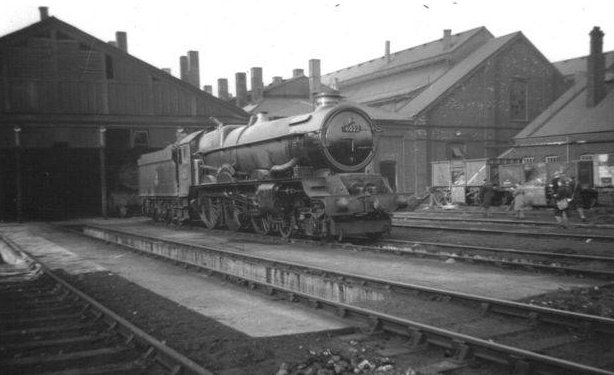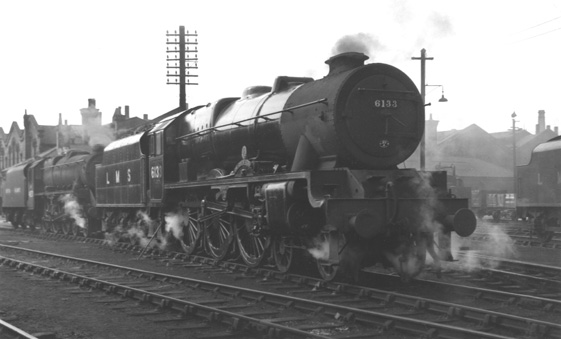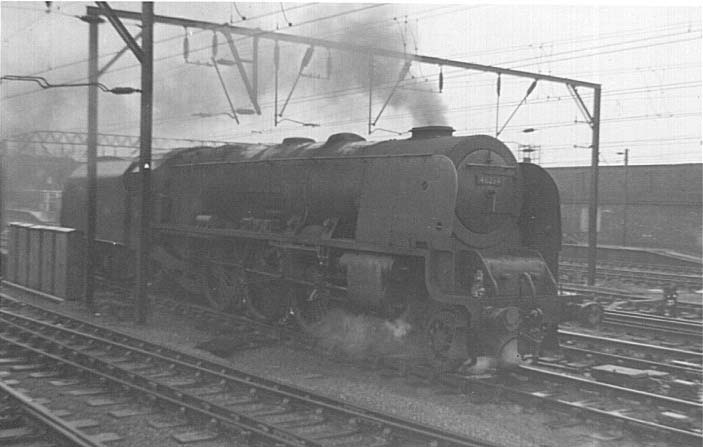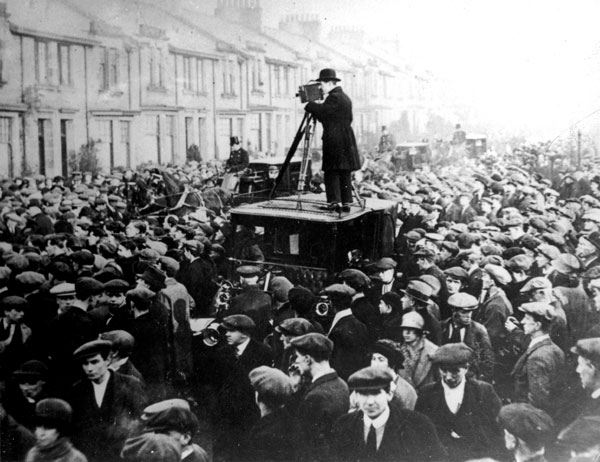Hello. This is a TL I've been working on for some time based around the Kaiserreich timeline and PoD used a lot in the Hearts of Iron II community. The creation of the Union of Britain (a Syndicalist-Socialist state in the former United Kingdom) is somewhat taken as read, but for those who are unclear - a British defeat in WWI makes the General Strike have even more devastating effects, and the TUC holds its nerve. The Army, more disgruntled than OTL because they lost the war, sympathise with the striking workers they've been sent to break up a la Russia 1917, and Revolution breaks out.
All the history book posts here will be done in an in-universe style. More information on the Kaiserreich timeline up to 1936 can be found at http://editthis.info/kaiserreich/Main_Page
Please comment and enjoy, though bear in mind this is a somewhat unashamed 'British leftism wank' that uses the PoD (quite a drastic change, I'm sure you'll agree) to justify various things that might be considered ASB otherwise. That said, despite the apparently utopian beginnings, there will be problems and complications that will keep things interesting. Not to mention various wars. So please, feel free to be honest about how plausible you think it is, but also let me know what you think of my writing style and 'impersonation of history books' - that's important to me as this is my first full-blown ATL History Book creation.
Thanks, and enjoy.
EDIT: The foreword for the PDF version of this, not yet ready for public consumption:
The following counterfactual history book takes place in a universe much like our own. The point of divergence came in 1917, when Woodrow Wilson was unable to convince the US congress to back war with Germany. With America absent from the war, the German had more time to defeat Russia and build up their forces in the west, beginning their final offensive in 1919 (rather than the rushed ‘Operation Michael’ of our universe’s 1918).
The French war effort collapsed and German troops marched into Paris. Just as it began, the Third Republic ended under German fire and facing revolution from within. Shortly after capitulating, France descended into Syndicalist revolution, creating the Commune of France. Similar events occurred in the defeated Italy, with the south of the country proclaiming the Anarcho-Syndicalist Republic of the Sicilies, and the victorious Austrians proclaiming a loose federation of Italian duchies in the north, under the nominal authority of the Pope.
Ironically, as Western Europe collapsed into leftist revolution, the Whites won the Russian Civil War. Kerensky managed to secure the support of the German Armed forces in exchange for acceptance of the Treaty of Brest-Litovsk’s concessions, and the White Generals, together with the German army, defeated the Reds. Lenin died at Petrograd, Trotsky at Tsaritsyn, while Bucharin went into hiding. The revolutionary calling himself ‘the Man of Steel’ was believed to have fled the country for the US.
But Britain did not capitulate as quickly as France and Italy did. Ludendorff and Hindenburg saw the folly of invading the British Isles and instead waged an inconclusive war on the seas and in their colonies. After two years without a decisive outcome being reached, Ludendorff proposed a ‘Peace with Honour’ to Lloyd George. Neither country would cede any colonial holdings to the other, but Britain would recognise German hegemony over Mitteleuropa and pay ‘reasonable’ reparations.
It was this that began the final months of the United Kingdom. Months after the signing of the Peace with Honour in November 1921, the bloody Irish War of Independence was concluded with the cessation of most of Ireland to Michael Collins’ ‘Republic of Ireland’. In exchange for recognition of the Republic, Britain kept hold of six of the nine counties of Ulster, establishing ‘Northern Ireland’. On the mainland, however, things were going from bad to worse. The economy was exhausted from years of war, and Britons felt humiliated and that they had wasted hundreds of thousands of lives for nothing. All it would take for Britain too to fall to leftist revolution was the right sequence of events. It just so happens that what we in our universe call ‘the General Strike of 1926’ happened a year earlier in this timeline, and became known as ‘the British Revolution’.
This timeline is not my own work – the credit for that must go to the team behind the Kaiserreich Project. More details can be found online if one Googles ‘Kaiserreich mod HoI2’. The contents of this book, however, are my own. Some events and descriptions between the years of 1925 and 1943 will also be from the Kaiserreich official timeline, but otherwise all details and machinations have been devised by myself. And, as if it needed to be said, any resemblance of any persons mentioned to real individuals, living or dead, is entirely intentional.
All the history book posts here will be done in an in-universe style. More information on the Kaiserreich timeline up to 1936 can be found at http://editthis.info/kaiserreich/Main_Page
Please comment and enjoy, though bear in mind this is a somewhat unashamed 'British leftism wank' that uses the PoD (quite a drastic change, I'm sure you'll agree) to justify various things that might be considered ASB otherwise. That said, despite the apparently utopian beginnings, there will be problems and complications that will keep things interesting. Not to mention various wars. So please, feel free to be honest about how plausible you think it is, but also let me know what you think of my writing style and 'impersonation of history books' - that's important to me as this is my first full-blown ATL History Book creation.
Thanks, and enjoy.
EDIT: The foreword for the PDF version of this, not yet ready for public consumption:
The following counterfactual history book takes place in a universe much like our own. The point of divergence came in 1917, when Woodrow Wilson was unable to convince the US congress to back war with Germany. With America absent from the war, the German had more time to defeat Russia and build up their forces in the west, beginning their final offensive in 1919 (rather than the rushed ‘Operation Michael’ of our universe’s 1918).
The French war effort collapsed and German troops marched into Paris. Just as it began, the Third Republic ended under German fire and facing revolution from within. Shortly after capitulating, France descended into Syndicalist revolution, creating the Commune of France. Similar events occurred in the defeated Italy, with the south of the country proclaiming the Anarcho-Syndicalist Republic of the Sicilies, and the victorious Austrians proclaiming a loose federation of Italian duchies in the north, under the nominal authority of the Pope.
Ironically, as Western Europe collapsed into leftist revolution, the Whites won the Russian Civil War. Kerensky managed to secure the support of the German Armed forces in exchange for acceptance of the Treaty of Brest-Litovsk’s concessions, and the White Generals, together with the German army, defeated the Reds. Lenin died at Petrograd, Trotsky at Tsaritsyn, while Bucharin went into hiding. The revolutionary calling himself ‘the Man of Steel’ was believed to have fled the country for the US.
But Britain did not capitulate as quickly as France and Italy did. Ludendorff and Hindenburg saw the folly of invading the British Isles and instead waged an inconclusive war on the seas and in their colonies. After two years without a decisive outcome being reached, Ludendorff proposed a ‘Peace with Honour’ to Lloyd George. Neither country would cede any colonial holdings to the other, but Britain would recognise German hegemony over Mitteleuropa and pay ‘reasonable’ reparations.
It was this that began the final months of the United Kingdom. Months after the signing of the Peace with Honour in November 1921, the bloody Irish War of Independence was concluded with the cessation of most of Ireland to Michael Collins’ ‘Republic of Ireland’. In exchange for recognition of the Republic, Britain kept hold of six of the nine counties of Ulster, establishing ‘Northern Ireland’. On the mainland, however, things were going from bad to worse. The economy was exhausted from years of war, and Britons felt humiliated and that they had wasted hundreds of thousands of lives for nothing. All it would take for Britain too to fall to leftist revolution was the right sequence of events. It just so happens that what we in our universe call ‘the General Strike of 1926’ happened a year earlier in this timeline, and became known as ‘the British Revolution’.
This timeline is not my own work – the credit for that must go to the team behind the Kaiserreich Project. More details can be found online if one Googles ‘Kaiserreich mod HoI2’. The contents of this book, however, are my own. Some events and descriptions between the years of 1925 and 1943 will also be from the Kaiserreich official timeline, but otherwise all details and machinations have been devised by myself. And, as if it needed to be said, any resemblance of any persons mentioned to real individuals, living or dead, is entirely intentional.
Last edited:

















